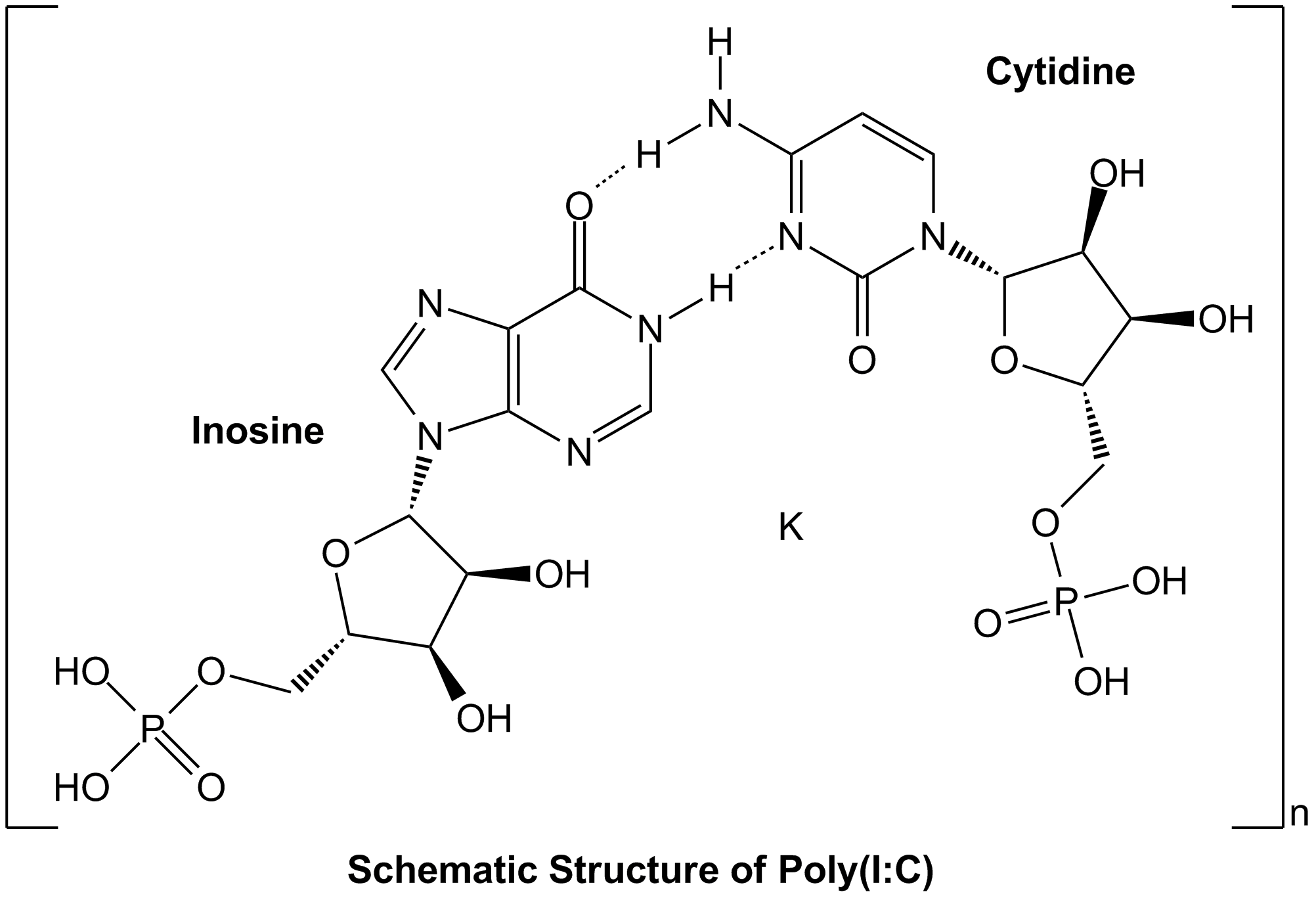
Chemical Structure
Polyinosinic-polycytidylic acid [Poly(I:C)] Endotoxin-free (sterile) [31852-29-6] [31852-29-6]
IAX-200-021
Product group Molecular Biology
Overview
- SupplierInnaxon
- Product NamePolyinosinic-polycytidylic acid [Poly(I:C)] Endotoxin-free (sterile) [31852-29-6] [31852-29-6]
- Delivery Days Customer2
- CAS Number31852-29-6
- CertificationResearch Use Only
- Estimated Purity>99%
- Molecular WeightHigh molecular weight (>1.5kb).
- Scientific DescriptionChemical. CAS: 31852-29-6. MW: High molecular weight (>1.5kb). Toll-like receptor (TLR) 3 is an endosomal TLR that mediates immune responses against viral infections upon activation by its ligand double-stranded RNA, a replication intermediate of most viruses. TLR3 is expressed widely in the body and activates both the innate and adaptive immune systems. Toll-like receptor 3 (TLR3), melanoma differentiation-associated gene 5 (MDA5), and retinoic acid-inducible gene-I (RIG-I), all sensors of double-stranded RNA (dsRNA) are potent inducers of antiviral activity. dsRNA sensor activation -e.g. by poly (I:C)- induces pro-inflammatory TNF-alpha and antiviral IFN-beta, but can also enhance the expression of pro-apoptotic proteins. Recently, poly (I:C)-induced cell death recently gained considerable attention as a tool to study the Ripoptosome or Necrosome complex, a novel intracellular signaling complex, thought to induce regulated necrosis, also called Necroptosis. - Toll-like receptor (TLR) 3 is an endosomal TLR that mediates immune responses against viral infections upon activation by its ligand double-stranded RNA, a replication intermediate of most viruses. TLR3 is expressed widely in the body and activates both the innate and adaptive immune systems. Toll-like receptor 3 (TLR3), melanoma differentiation-associated gene 5 (MDA5), and retinoic acid-inducible gene-I (RIG-I), all sensors of double-stranded RNA (dsRNA) are potent inducers of antiviral activity. dsRNA sensor activation -e.g. by poly (I:C)- induces pro-inflammatory TNF-alpha and antiviral IFN-beta, but can also enhance the expression of pro-apoptotic proteins. Recently, poly (I:C)-induced cell death recently gained considerable attention as a tool to study the Ripoptosome or Necrosome complex, a novel intracellular signaling complex, thought to induce regulated necrosis, also called Necroptosis.
- Storage Instruction2°C to 8°C
- UNSPSC41115813
